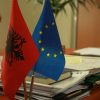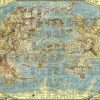 The Israeli attack on Gaza and the downing of flight MH17 over the Eastern Ukraine are not only two events dramatic in themselves and for those who are their victims, but have also come to mark the tragic absence of Europe, the EU, which was caught wrongfooted, divided and on the verge of completing its cast of high-level characters. Furthermore, Italy is not only occupying this semester’s Council Presidency but also attempting to get one of its own candidates to become the next High Representative for Foreign and Security Policy. The Minister of Foreign Affairs, Federica Mogherin (aged 41), promoted by the triumphant Prime Minister, Matteo Renzi, has so far been considered too ‘soft on Russia’ by a significant part of the EU’s Eastern leaders. Meanwhile, her possible Italian alternative, Massimo d’Alema (aged 65), is considered too ‘soft on the Palestinians’ and the head of Poland’s diplomats, Radosław Sikorski, too ‘tough on Russia’. The decision, which will also concern the identity of the next President of the European Council, has been postponed to another meeting on 30 August. Not that more time is necessarily a bad thing. The trouble is if more time leads to the election of an individual of no attributes. Will the Catherine Ashton mistake be repeated?
The Israeli attack on Gaza and the downing of flight MH17 over the Eastern Ukraine are not only two events dramatic in themselves and for those who are their victims, but have also come to mark the tragic absence of Europe, the EU, which was caught wrongfooted, divided and on the verge of completing its cast of high-level characters. Furthermore, Italy is not only occupying this semester’s Council Presidency but also attempting to get one of its own candidates to become the next High Representative for Foreign and Security Policy. The Minister of Foreign Affairs, Federica Mogherin (aged 41), promoted by the triumphant Prime Minister, Matteo Renzi, has so far been considered too ‘soft on Russia’ by a significant part of the EU’s Eastern leaders. Meanwhile, her possible Italian alternative, Massimo d’Alema (aged 65), is considered too ‘soft on the Palestinians’ and the head of Poland’s diplomats, Radosław Sikorski, too ‘tough on Russia’. The decision, which will also concern the identity of the next President of the European Council, has been postponed to another meeting on 30 August. Not that more time is necessarily a bad thing. The trouble is if more time leads to the election of an individual of no attributes. Will the Catherine Ashton mistake be repeated?
In any case, time will not stand still for the EU. The dynamic of events, in which there are vital European interests at play, is not in synchrony with the dynamics of the Union’s institutions, as recalled by the Italian diplomat and intellectual Roberto Toscano. Not that all Europeans are inactive in the face of the shooting down of the Malaysian Airlines’ Boeing 777, for France, the UK, Germany and especially the Netherlands, the country with the most victims, have taken a stand in a crisis that has acquired global importance. But the EU as such remains absent, as in the Middle East also.
Confronted with the crisis between Israel and Hamas, and by extension between Israel and the Palestinians, the Europeans have given up and seem to have renounced playing any significant role, while the US has failed in its umpteenth attempt to launch a peace plan. While the only option in this conflict is for the US and Europe to apply pressure on both sides, the weight of the past is too heavy to allow them to exercise the necessary muscle. Even if there is ultimately a faint glimmer for peace –and this is a huge assumption–, neither Europe nor the US are likely to play a leading role. Europe is divided and always has been, and not because direct interests are involved but because of their vision and role in history. Germany –without which doing anything will be difficult– will never exert pressure on Israel. And other countries are just as unlikely to do so.
What divides Europeans in their attitudes towards Russia and the Ukraine is their different perception of their specific interests. The dramatic events of flight MH17 have put the Europeans against the ropes following the release of the evidence provided by Washington that points to Russia’s responsible, if only for irresponsibly arming the pro-Russian separatists in the Eastern Ukraine with Buk missiles. Before this episode the US had tightened its sanctions against Russia, but Europe was reluctant. For how long?
A European role, both in Gaza and the Ukraine, is essential. The Israeli attack might be an opportunity to remember that the conflict is still there and that even if it does not have the global impact it had some years ago, it is at least a regional concern and requires if not a solution, at least some channelling and containment. The same can be said about flight MH17 and the Ukraine, where the attack on a civilian aircraft can provide the opportunity to force Putin to reconsider and stop supporting the pro-Russian rebels.
The EU is once again talking about speaking. Speaking with one voice, an aim which was specified many years ago now, before the days of the Lisbon Treaty, of High Representatives and of the European External Action Service. Precisely what the EU needs is less talk and more action. For, as Toscano reminds us, there are sins of ommission also. Omissions that cannot be justified by blaming the institutional debate. Will the meeting of European Ministers of Foreign Affairs surprise us?


